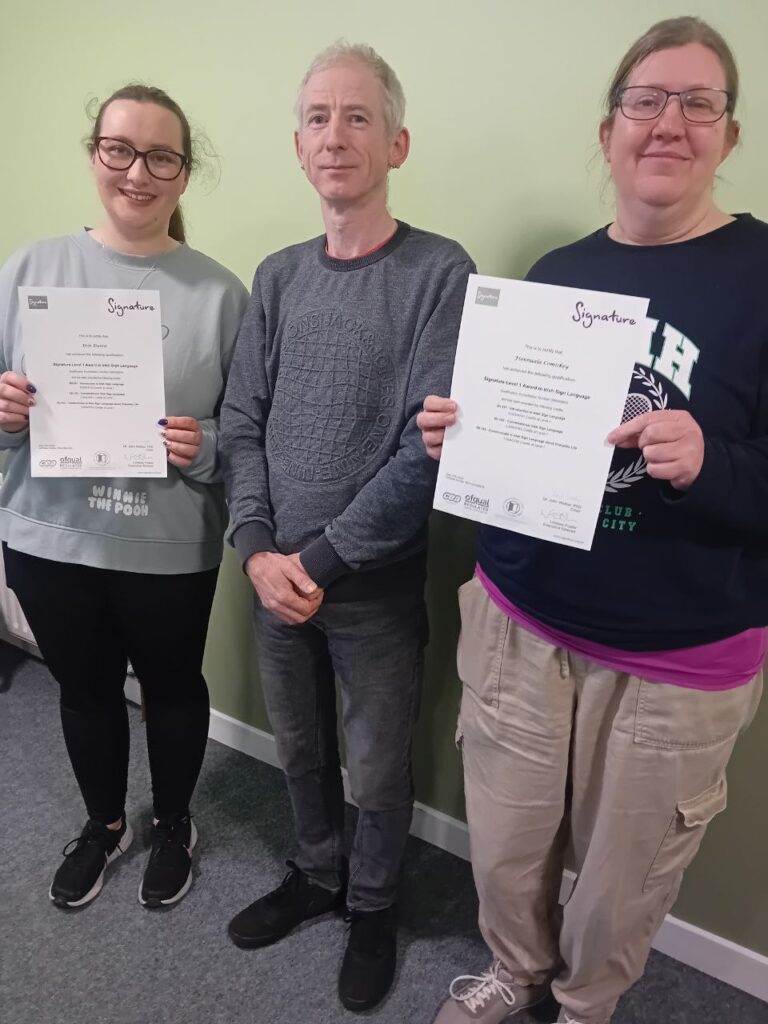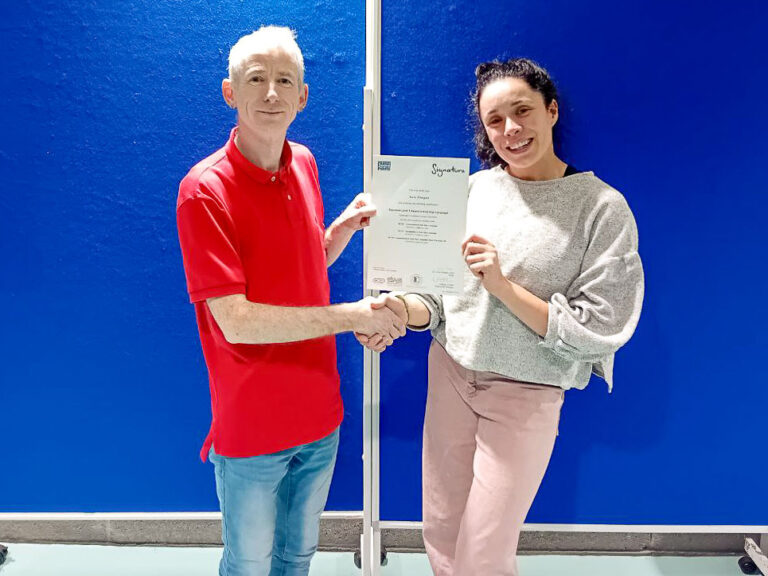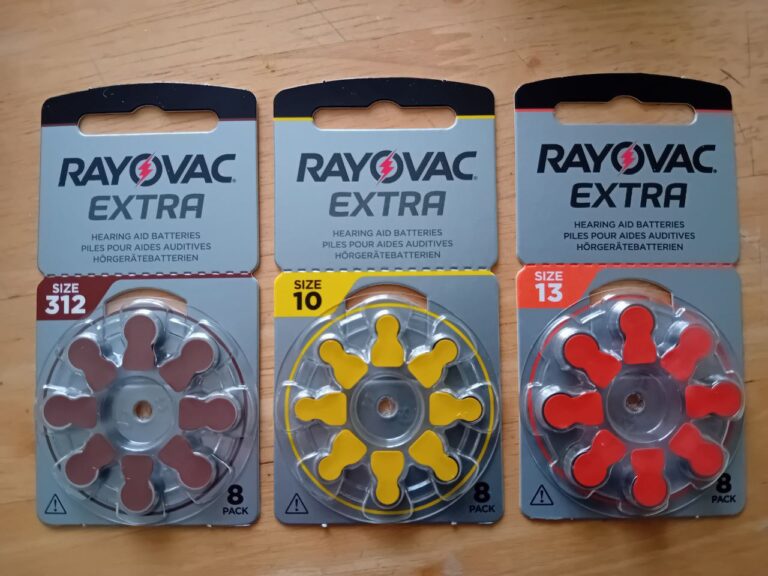Madras, India (by Frances Parsons)
Frances Parsons, a retired deaf professor at Gallaudet University, wrote about her time in India where she got to spend time with Miss Boyd, who used to teach for many years at the Ulster Institution on Lisburn Road (did she teach at Jordanstown?) – many older deaf people in Belfast would remember having her as their teacher. There is a few pages from the book about Parsons’ encounter with Miss Boyd.
Shane
==
Madras, India (by Frances Parsons)
Miss Boyd, the Irish principal of the Madras School for the Deaf, generously
fed me with familiar food: boiled potatoes, cucumbers, raw carrots,
tomatoes, lettuce, whole wheat bread, and peanut butter. It was
heavenly not to suffer any more spicy, unsavory, or pungent dishes (up
until then I had gamely been trying to eat the native food of each region
but found that most of those dishes didn’t agree with me). And I
could read her lips easily. Although she was receptive to allowing sign
language in classrooms, she warned me that there would be a strong resistance
from the teachers at Little Woodford, a small and very strictly
oral school.
Miss Boyd was right about the resistance. During my visit to Little
Woodford, I was forbidden to take photographs. The eyes of the preschool
children looked tired and dull. I had seen the same exhausted
looks when I visited the Clarke School (oral) for the Deaf back in the States.
But at Little Woodford, the principal was astounded that I spoke well.
She dragged me from classroom to another, saying, “She speaks very
well. You can do that, too.”
I resisted telling the principal that I ALSO use sign language, but I
saved that argument until she invited me to present my talk to her pupils’
parents the next evening. I agreed but, to her chagrin, I deliberately
signed simultaneously with my speech at the presentation. The principal
hopped up, picked up a drum, and banged on it. She strutted back and
forth between the audience and me. I complained to Miss Boyd about
her discourteous behavior. Miss Boyd just grinned from ear to ear and
said, “You had her rattled! You got those parents asking me to set up tonight’s
meeting so they can hear you talk and ask you questions!”
I was then better prepared to confront the hostile reactions from the
teachers at the next presentation after I showed the film depicting Gallaudet
students signing in the classroom. The teachers hotly argued
that sign language would confuse deaf children and diminish their abilities
to lipread and speak.They also believed that sign language was not
a valid method of communication with hearing people, would not improve
the family relationship, and would retard the children’s learning.
One pointed out, “The deaf would be too busy signing to each other,
and we wouldn’t know what they were talking about.” I smiled, “That is
EXACTLY how we, the deaf, have been left out throughout our lives
with your talking to each other, and we don’t know what you are talking
about.” I sensed that the audience was shocked at my response.
Another school in Madras, however, warmly welcomed me. Sister
Rita, the headmistress of the Little Flower Convent school, arranged
my presentation for the next day. Forty attractive young teachers attended
and were receptive to using Total Communication. As I walked
down the stairs of the three-story school, a nine-year-old deaf boy
stopped me and gestured, asking if it was true I used sign language.
I nodded. He put his arms around my waist and signed, “I love you.”
In the late afternoon, I decided to walk on the nearby beach. Miss
Boyd wouldn’t let me go alone and sent two girls to accompany me.
Imagine the girls, eleven and twelve years old, chaperoning me! They
bombarded me with questions about American deaf children, which
I enjoyed tremendously. This was also my first opportunity to see the
Indian fishermen using curved, raft-like kattamavar boats that could
fold after the use, while their wives sold fish from wicker baskets. Most
of the fishermen shamelessly wore nothing but their birthday suits as
they pulled their boats to the sea.
Miss Boyd had arranged for me to speak at six training centers for
deaf adults, a parents’ association (many parents were receptive to signing
and wanted to send their children to Gallaudet), and the Deaf club,
with some sightseeing squeezed in over five days.
On the last day, Miss Boyd and I reminisced over the successes and
failures of the programs and discussed the different schools all over
India. She mentioned that she felt Mysore City School for the Deaf
was one of the worst and most depressing. Could that be the reason
Miss Manohara maneuvered me away from a classroom visit? Had
she been too ashamed to allow me to see the inside of the school? Yet
I pointed out that those children were granted the heavenly gift to
sign and fingerspell, and the ones I had met outside the school had
looked happy, regardless of whether their school lacked the proper
facilities.
We bade each other a fond farewell and I went to the airport in a taxi,
which got a flat tire en route. I barely made it in time to catch my plane.
I rushed to the counter and was told, “Airport tax. Fifteen rupees, please.”
I fished the money out and an airport worker stamped my boarding pass.
An inspector at the passport and visa desk looked at my visa and then at
me as though I were an alien caught in the act of conducting a terrible
felony. He passed it to another inspector who also looked at me suspiciously.
I cringed to learn that my visa had expired and I had overstayed
twenty days in India. It was a nightmare. My passport was confiscated,
and the officer ordered me to be sent to jail! I quickly showed them the
newspaper clipping with the photograph of me meeting Indira Gandhi
and I was then spared from being hauled off to jail.
I frantically made a phone call to Miss Boyd while my plane to Ceylon
took off without me. An immigrant officer was merciless, blasting
orders through his thick moustache and gesturing for me to return to
the city’s main immigrant office. My airport tax was refunded, my
boarding pass was returned, and my plane ticket was stapled back to its
original place. I filled out four long pages of reasons, declarations,
passport numbers, on and on. Finally, I met with the top director of
immigration who sneered at me. I showed him the address of the
Madras School for the Deaf, so I was permitted to return there to wait
for the next plane to Colombo, Ceylon. I sent a cable explaining the
delay to Mr. Cooray, headmaster of the first school for the deaf in Ceylon
I was to visit. Miss Boyd and I spent the rest of the day discussing
teaching methods, maladies, taxi drivers, horoscopes, and everything
else under the sun. I told her of my earlier intestinal problems and she
warned me to never drink from a glass that had been shared among
numerous people because so many people in India suffered from intestinal
illnesses.
While waiting at the airport for the next plane, I observed a large tour
group of Americans and was not proud of them for their “cock-of-thewalk”
behavior, their immoral dress, and the way some of them treated
the shopkeepers. It was a small comfort to hear the natives say that the
Japanese tourists were the worst (although when I visited Japan, their
hospitality, manners, and behavior were excellent), French tourists were
the second worst, and the Americans, third.






